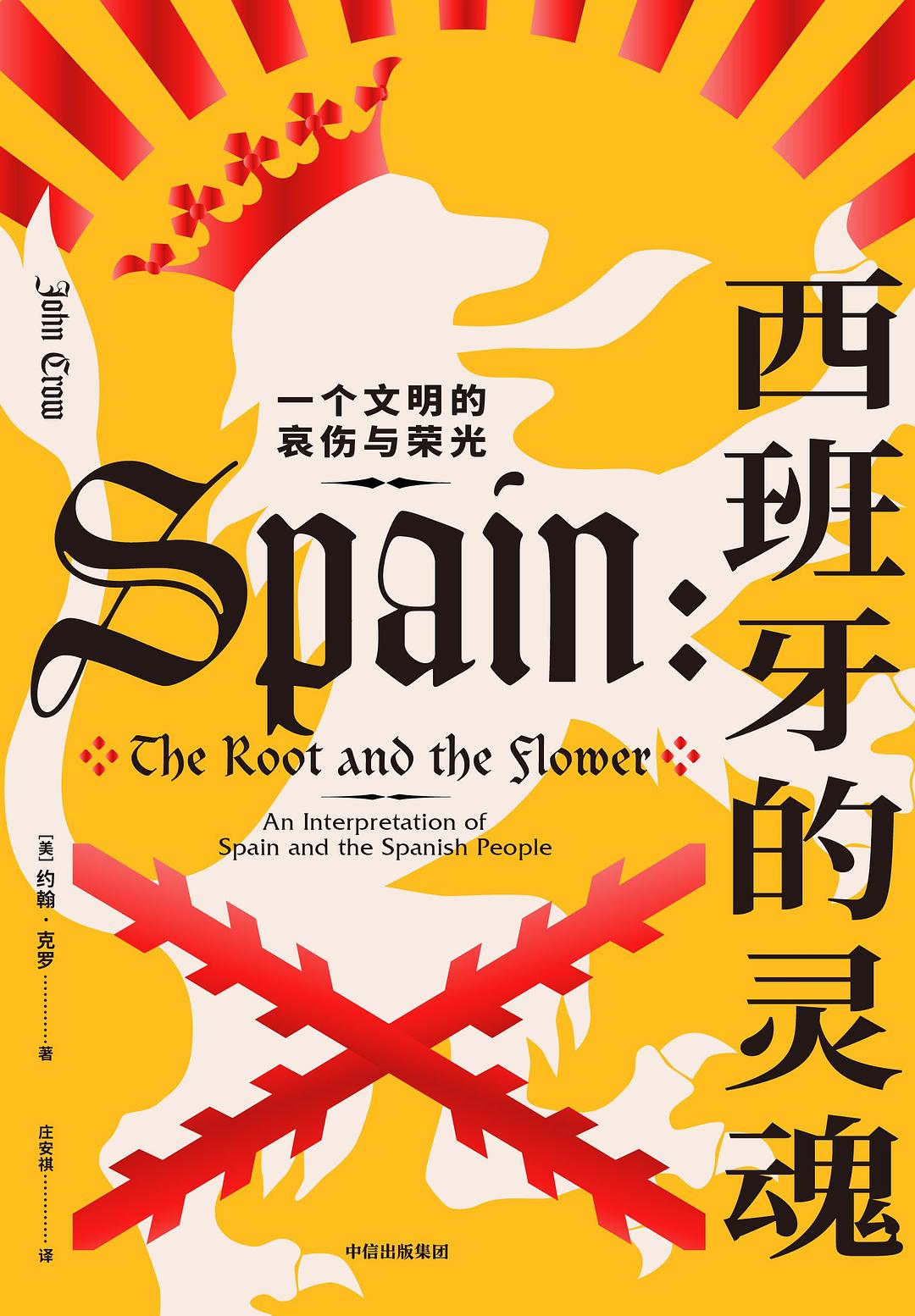WULOLIFE
《西班牙的灵魂: 一个文明的哀伤与荣光》作者: [美] 约翰·克罗 出版社: 中信出版集团
《西班牙的灵魂: 一个文明的哀伤与荣光》作者: [美] 约翰·克罗 出版社: 中信出版集团
Couldn't load pickup availability
Description
内容简介 · · · · · ·
★一部横跨两千多年的西班牙文化史,内核。
★看见跌宕起伏的历史,也领略混杂多元的文化;感受一个民族热烈的生命力,也体味它的悲伤与彷徨】
★有血有肉的历史,饱含深情的讲述。一本书把握西班牙、爱上西班牙
----------------------------------
【内容简介】
这是一部横跨两千多年的西班牙文化史。从伊比利亚半岛文明曙光初现起,西班牙这片土地上先后经历了罗马帝国的征服、西哥特的入侵、摩尔人的统治、基督徒的再征服运动、天主教双君的大一统、哈布斯堡和波旁王朝的兴衰、佛朗哥独裁,直至后佛朗哥时代的浴火重生。本书考察了上述重大历史阶段,并着重关注政治事件表象下的思想潮流和民族特质。全书从建筑、文学、艺术、社会、政治等多方面混杂多样的精神底色,阐明地处欧洲边缘的西班牙如何融合了罗马、北非、阿拉伯的世俗及宗教文化,如何迸发出璀璨的文学艺术火花,如何在8个世纪的收复失地运动中达到宗教热情和国家一统的巅峰,如何开启了大航海时代却错失种种发展机遇,又如何在左翼右翼的撕裂中经历内战之殇。
这也是一次对西班牙灵魂饱含深情的凝视。作者约翰·克罗20世纪30年代曾留学西班牙,与洛尔迦、希目睹过内战前夕的不安,与“1898年一代”有着强烈的思想共振。克罗凭借丰富的学养、实地的体察和对这片土地爱怨交织的深厚感情,为我们勾勒出西班牙充满魅力又矛盾重重的性格侧写:感性又禁欲,有创造力又趋于保守,极度分化又。
我们得以见证西班牙两千多年来的历史沿革,在它文学与艺术的花园里含英咀华,领略这个民族独特的精神特质,理解西班牙何以成为今日的模样。
----------------------------------
【编辑推荐】
1、以文化线索串连两千多年的西班牙历史
本书另辟蹊径,从文化视角出发,以核心政治历史事件为纲,以其背后的风俗与思潮为暗线,理解西班牙如何成为今日的模样。这能够帮助我们不再迷失在碎片里。
2、矛盾的气质:理解西班牙的关键
热情奔放?文艺发达?热衷宗教?老国的没落? ...的事实。本书敏锐地从历史线索中抽丝剥茧,勾勒出西班牙充满魅力又矛我们对西班牙的种种模糊的印象,都能由此豁然开朗。
3、一场西班牙文学、艺术、思想的盛宴
流浪汉文学、经典史诗、黄金时代巨匠、宗教建筑奇观……作者克罗凭借西班牙语言文学领域的扎实学养,花了很大功夫介绍了文学艺术的盛衰,更旁征博引了大量动人的篇章,使我们得以快速集中地了解西班牙熠熠生辉的文化精华,感受个中魅力。
4、爱怨交织,真挚动人,一本书爱上西班牙
克罗与西班牙渊源颇深。与洛尔迦等人的友谊、西班牙内战前夕的所见所闻、与“1898年一代”的思想共鸣、多次造访西班牙的经历,造就了他对这片土地爱之深、责之切的复杂感情。这一点借助他优美尽致,即便不了解西班牙的读者也会被深深打动,在心理上拉近与这个国家的距离。
----------------------------------
【名人/媒体推荐】
本书的特色在于作者深入洞悉了西班牙这片土地上的风俗、其人民基于共享的地理环境和历史而形成的根本心理,以及极富热情地介绍了远比政治进程更夺目本书涵盖了各种基本的政治事实,但对于作者和读者而言,更重要的在于这个国家的地方性特质。作者1928年首次造访西班牙,之后又多次实地旅行,收获了宝贵的洞察和智慧,又以生动的语言传达给读者,体现出卓越西班牙人文研究者的学养。
《泰晤士报文学评论副刊》(Times Literary Supplement)
作者约翰·克罗试图通过研究西班牙的社会文化习俗和运动、它略显以及它在艺术和文学、政治信仰和政治冲突方面的悠久历史来阐明西班牙的灵魂。……一大亮点在于许多生动而丰富的摘录,一本出色的指南,真挚的赏析。
《柯克斯书评》(Kirkus Reviews)
作者简介 · · · · · ·
[美] 约翰·克罗(John A. Crow,1906—2001)
美国加州大学洛杉矶分校西班牙语言文学系荣休教授,1937 1974-1974
19, 20, 2020, 2020, 2020彼时访问纽约的著名西班牙诗人洛尔迦.继续深造,于1933年取得博士学位。他与洛尔迦在马德里再度Residencia of Estudiantes)在西班牙内战前夕的令克罗与西班牙结下了特殊的缘分。
克罗也是一位杰出的拉丁美洲研究者。在彼时盛行欧洲中心视角的学界,他是推动拉丁美洲文他在1946年出版的著作《拉丁美洲史诗》(The Epic of Latin America, China, America
为他在学术界之外赢得了广泛的读者群。
